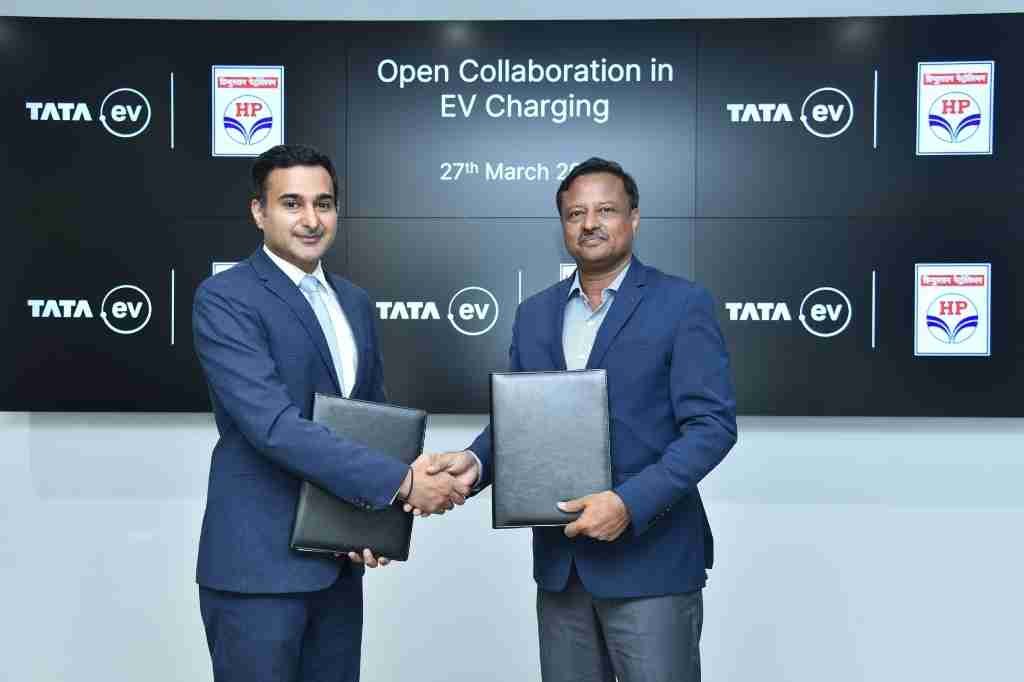Electric vehicles are increasing rapidly everywhere, especially in Tier 1 and 2 cities. Tata Motors, an Indian car maker, holds a sizable number in market share of electric cars and has signed an MOU with Hindustan Petroleum Corporation Ltd. (HPCL) to collaborate in installing public EV charging stations across India.
One big issue electric car owners face is the limited range. First of all, the advertised range of the EV is not realistic and runs less than what the manufacturer says. Moreover, the EV charging infrastructure is poor in the country. However, the number of EV charging stations is increasing year by year. Still, EV infra has a long way to go to cover the entire country.
Tata Motors and HPCL partnership can eliminate range anxiety and improve the experience of EV owners across India, especially on the highways. Hindustan Petroleum has a network of over 21,000 fuel stations, which Tata will take advantage of. Moreover, HPCL aims to install 5,000 electric vehicle charging stations by December 2024.

We need more collaborations like this to encourage EV adoption. Widespread EV charging stations will play a crucial role in making mass EV adoption possible in India. Tata Motors has four products in its EV portfolio, and the ecosystem is rising in the country. Tata Motors introduced its first EV-exclusive store in Gurugram. Similarly, across the country, HPCL has installed 3050 EV charging stations, including battery swapping stations.
The Indian government is very optimistic about electric vehicles and is making policies that will benefit the EV ecosystem. In the recently approved e-vehicle policy, the government has set a 15% import duty for premium EV manufacturers (Tesla, Vinfast) to import EVs.
EV Charging Stations need an easier payment system
The two companies are also exploring a convenient payment system through an RFID card to make the charging experience hassle-free. We need a universal way of payment for EV charging stations as we do at fuel stations. Currently, making payments to the brand that set up a charger is troublesome and time-consuming. Why does every different brand of EV charger require a separate app to receive payments? I do not understand. Also, while making payments, server and Internet problems are another pain.

Electric vehicle technology is improving rapidly, and current EV technology will likely be irrelevant after a decade. We are standing in the early stages of electric vehicles.
Battery & Range Problem
Currently, users are doubtful about adopting the EV ecosystem for mainly two reasons: the low battery range and the few EV charging stations available. An EV charging station at every or most fuel stations will solve the range problem, but charging time is something you need to keep in mind.
However, you live in a big city and have bought an EV for city commuting. Probably, you won’t face range issues due to the many EV chargers available nearby. But, for highway runs, you have to plan more or avoid them. In the long highway run, Petrol, diesel, and Hybrid cars make more sense.
The EV division of Tata Motors and Hindustan Petroleum have taken crucial initiatives for EV users and the future. Our country needs more such collaborations to set up better EV charging stations.
